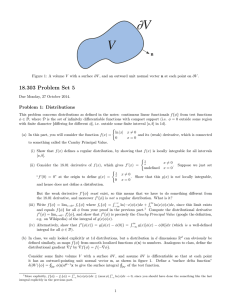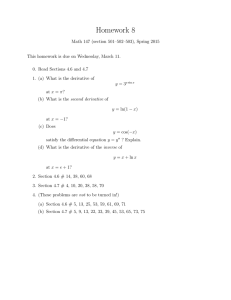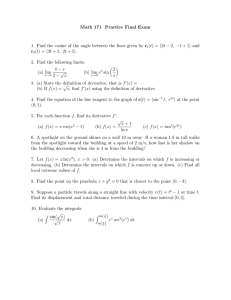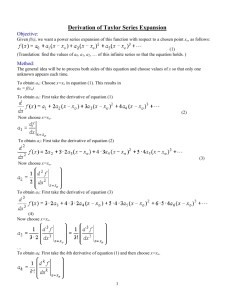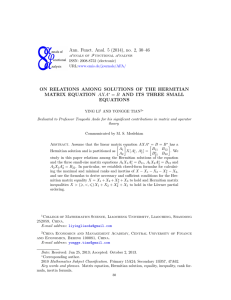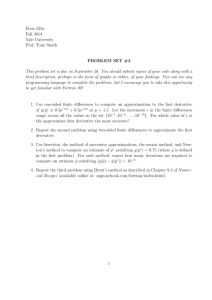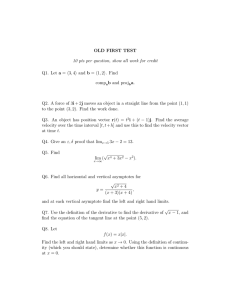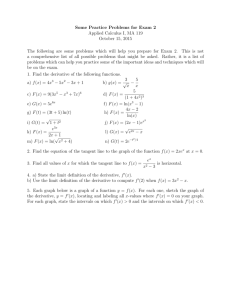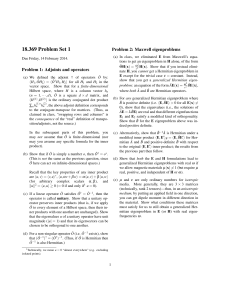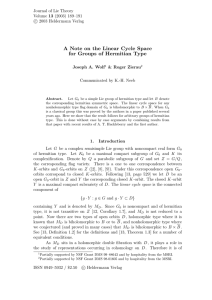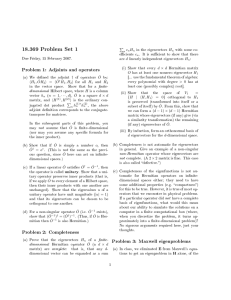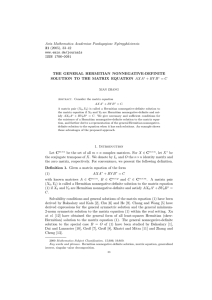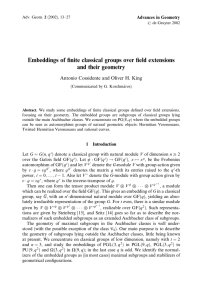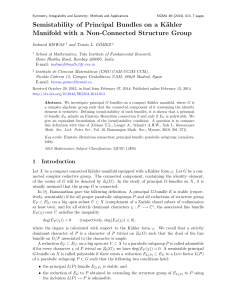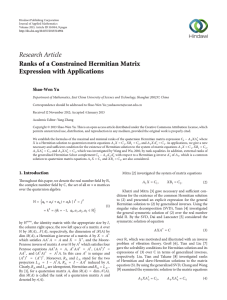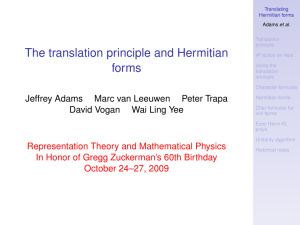18.303 Problem Set 5 Problem 1: Hermitian Green’s functions
advertisement
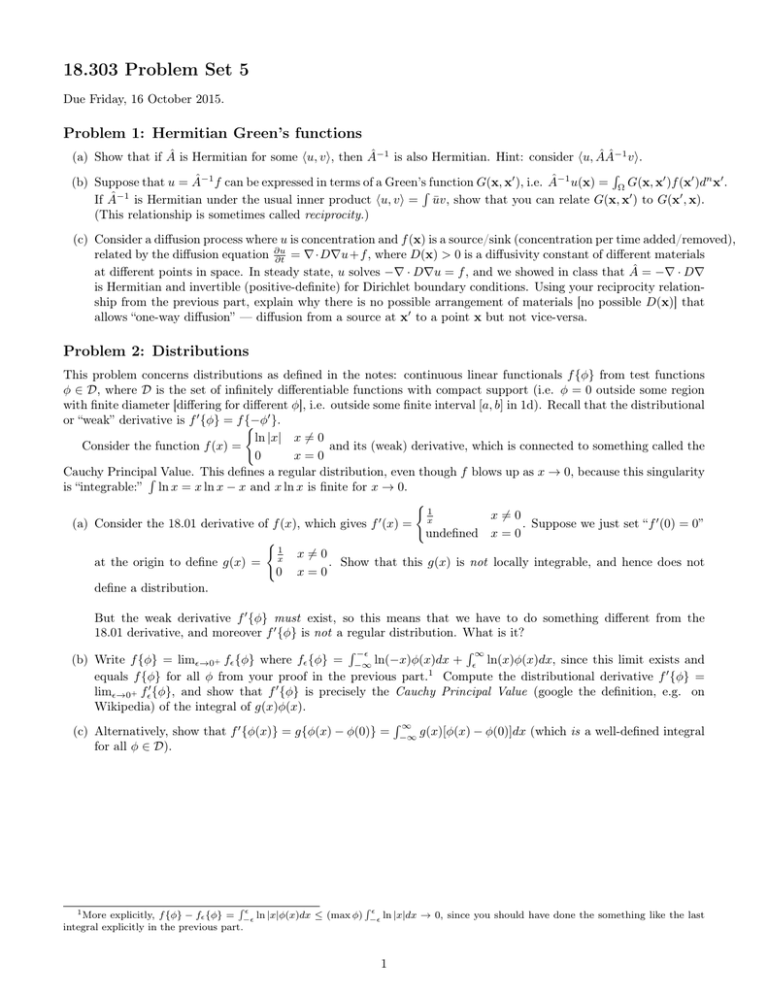
18.303 Problem Set 5
Due Friday, 16 October 2015.
Problem 1: Hermitian Green’s functions
(a) Show that if  is Hermitian for some hu, vi, then Â−1 is also Hermitian. Hint: consider hu, ÂÂ−1 vi.
´
(b) Suppose that u = Â−1 f can be expressed in terms of a Green’s function G(x, x0 ), i.e. Â−1 u(x) = Ω G(x, x0 )f (x0 )dn x0 .
´
If Â−1 is Hermitian under the usual inner product hu, vi = ūv, show that you can relate G(x, x0 ) to G(x0 , x).
(This relationship is sometimes called reciprocity.)
(c) Consider a diffusion process where u is concentration and f (x) is a source/sink (concentration per time added/removed),
related by the diffusion equation ∂u
∂t = ∇·D∇u+f , where D(x) > 0 is a diffusivity constant of different materials
at different points in space. In steady state, u solves −∇ · D∇u = f , and we showed in class that  = −∇ · D∇
is Hermitian and invertible (positive-definite) for Dirichlet boundary conditions. Using your reciprocity relationship from the previous part, explain why there is no possible arrangement of materials [no possible D(x)] that
allows “one-way diffusion” — diffusion from a source at x0 to a point x but not vice-versa.
Problem 2: Distributions
This problem concerns distributions as defined in the notes: continuous linear functionals f {φ} from test functions
φ ∈ D, where D is the set of infinitely differentiable functions with compact support (i.e. φ = 0 outside some region
with finite diameter [differing for different φ], i.e. outside some finite interval [a, b] in 1d). Recall that the distributional
0
or “weak” derivative is f 0 {φ} = f {−φ
( }.
ln |x| x 6= 0
Consider the function f (x) =
and its (weak) derivative, which is connected to something called the
0
x=0
Cauchy Principal
´ Value. This defines a regular distribution, even though f blows up as x → 0, because this singularity
is “integrable:” ln x = x ln x − x and x ln x is finite for x → 0.
(
1
x 6= 0
. Suppose we just set “f 0 (0) = 0”
(a) Consider the 18.01 derivative of f (x), which gives f 0 (x) = x
undefined x = 0
(
1
x 6= 0
at the origin to define g(x) = x
. Show that this g(x) is not locally integrable, and hence does not
0 x=0
define a distribution.
But the weak derivative f 0 {φ} must exist, so this means that we have to do something different from the
18.01 derivative, and moreover f 0 {φ} is not a regular distribution. What is it?
´ −
´∞
(b) Write f {φ} = lim→0+ f {φ} where f {φ} = −∞ ln(−x)φ(x)dx + ln(x)φ(x)dx, since this limit exists and
equals f {φ} for all φ from your proof in the previous part.1 Compute the distributional derivative f 0 {φ} =
lim→0+ f0 {φ}, and show that f 0 {φ} is precisely the Cauchy Principal Value (google the definition, e.g. on
Wikipedia) of the integral of g(x)φ(x).
´∞
(c) Alternatively, show that f 0 {φ(x)} = g{φ(x) − φ(0)} = −∞ g(x)[φ(x) − φ(0)]dx (which is a well-defined integral
for all φ ∈ D).
´
´
explicitly, f {φ} − f {φ} = −
ln |x|φ(x)dx ≤ (max φ) −
ln |x|dx → 0, since you should have done the something like the last
integral explicitly in the previous part.
1 More
1
